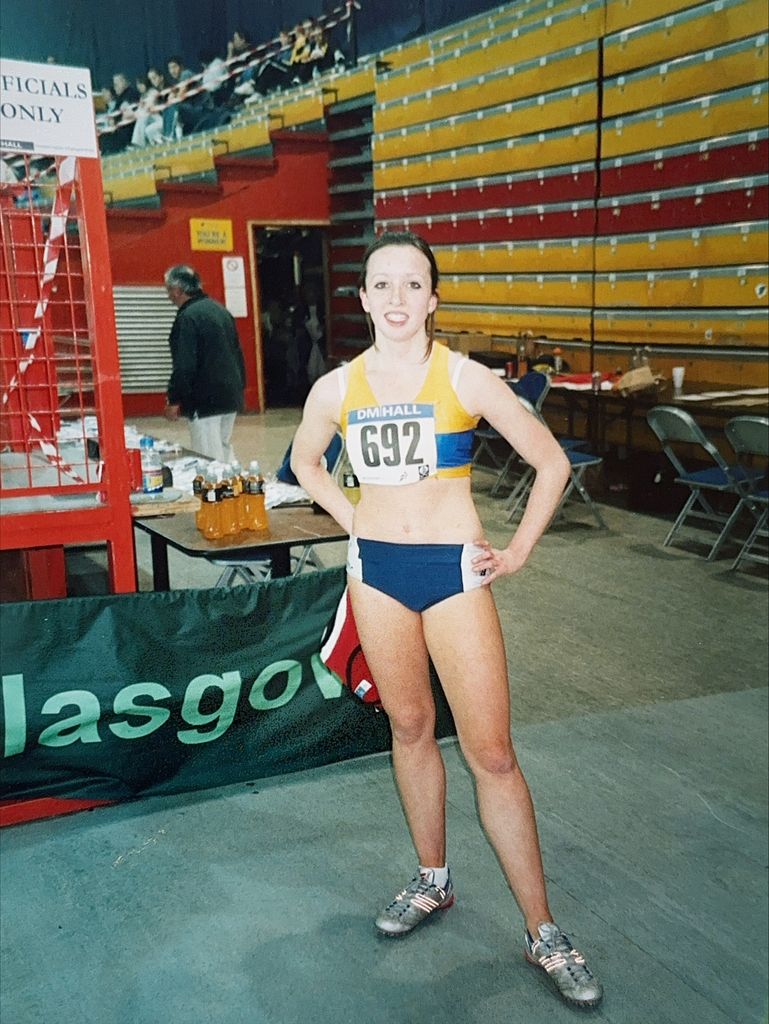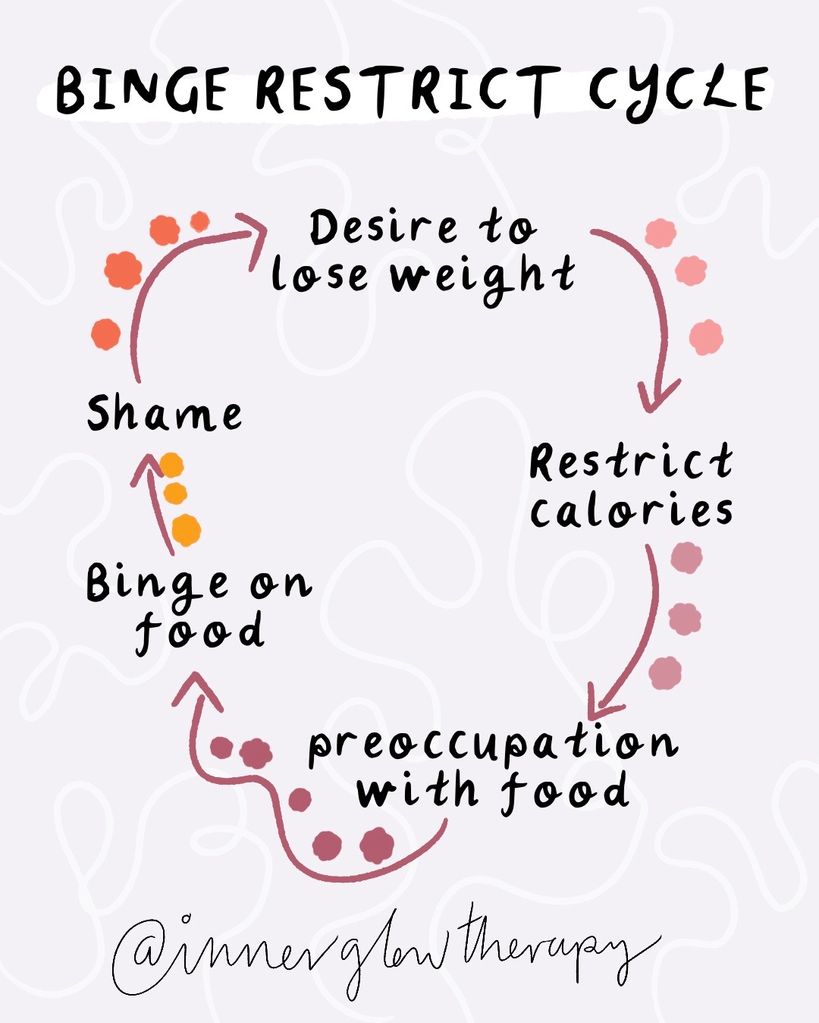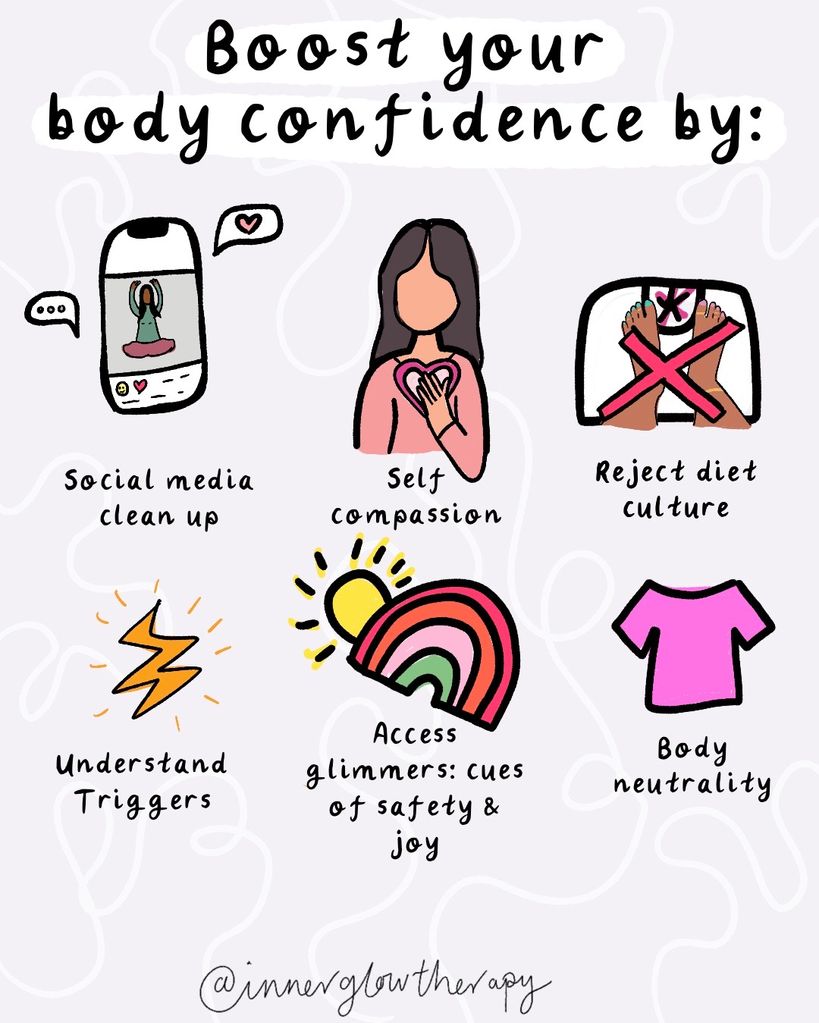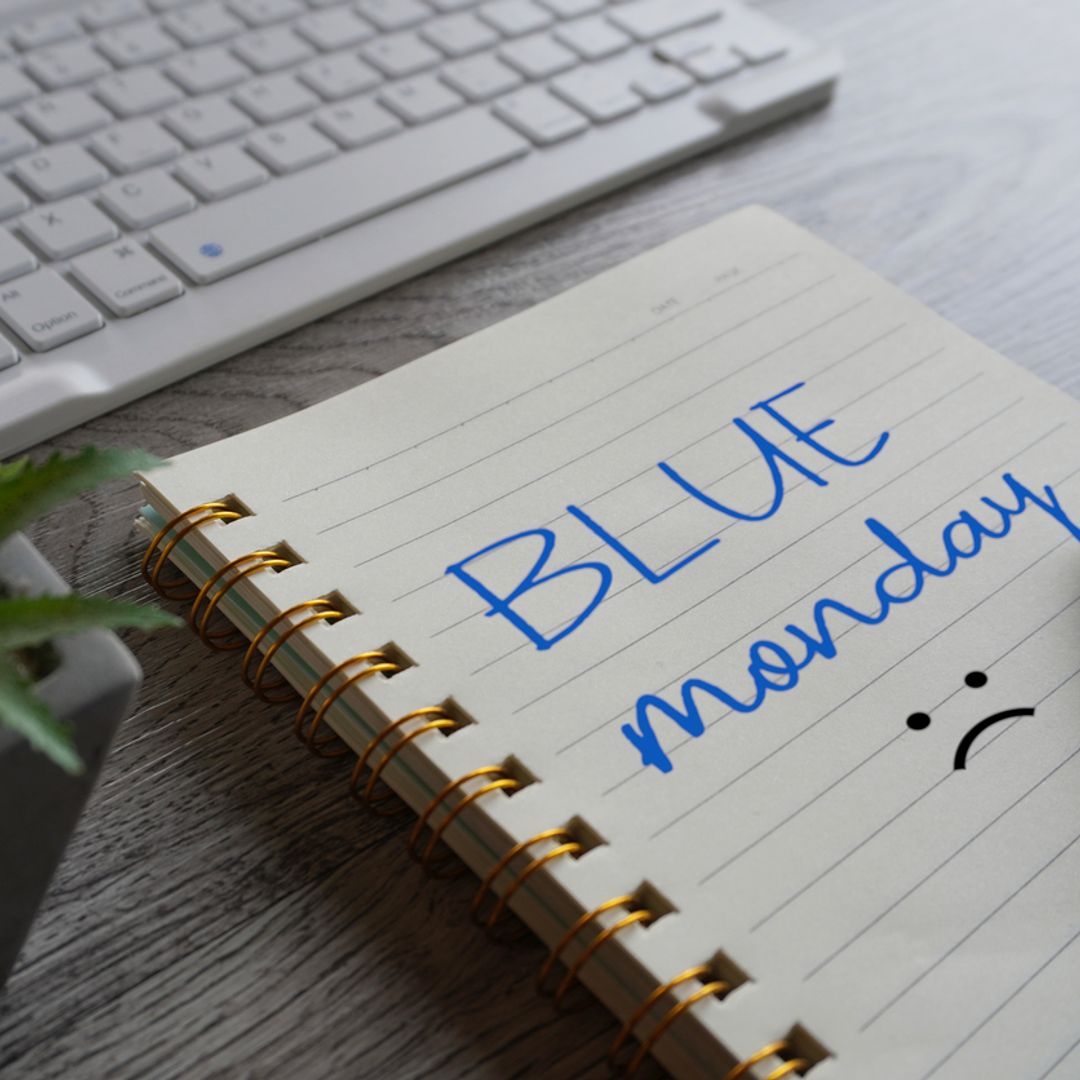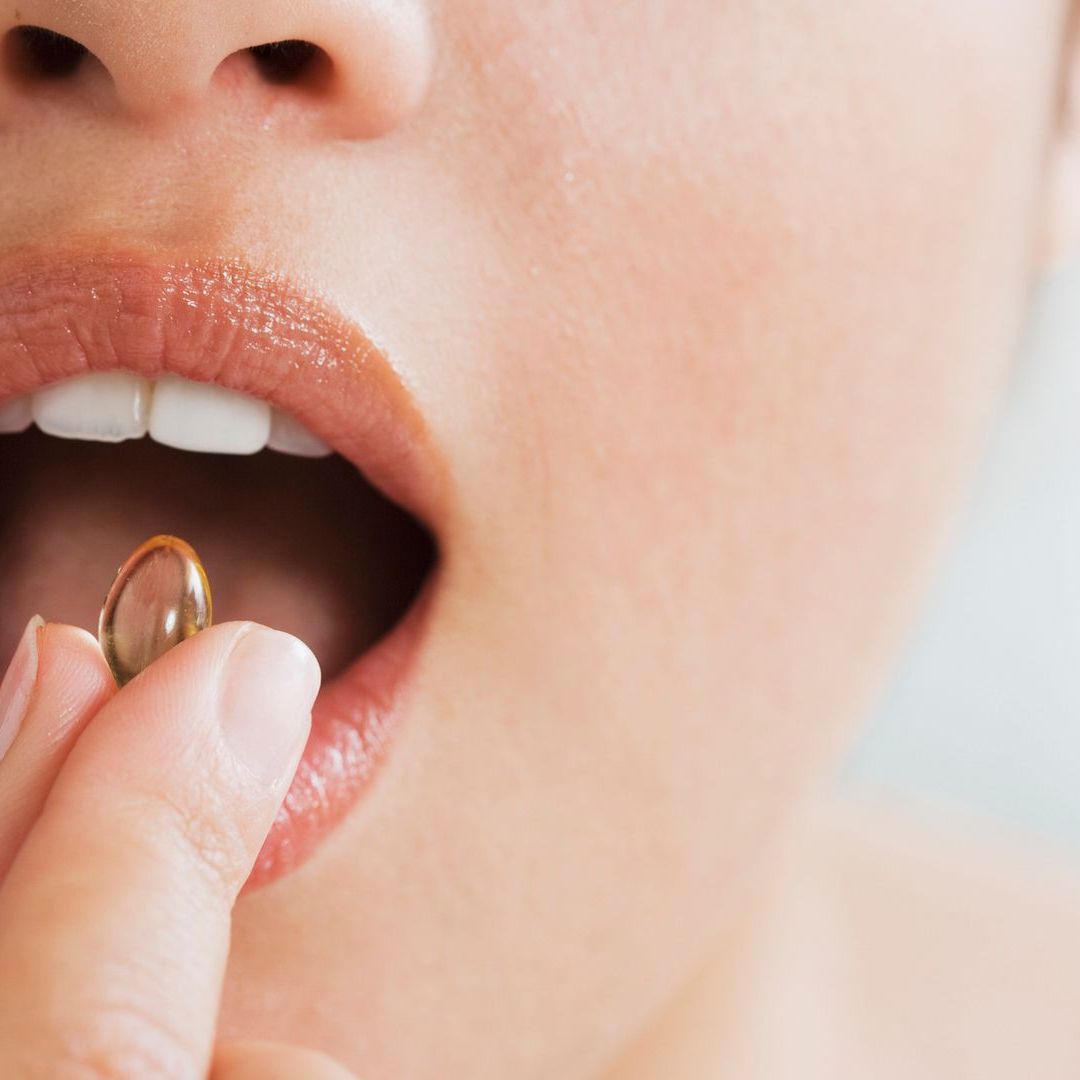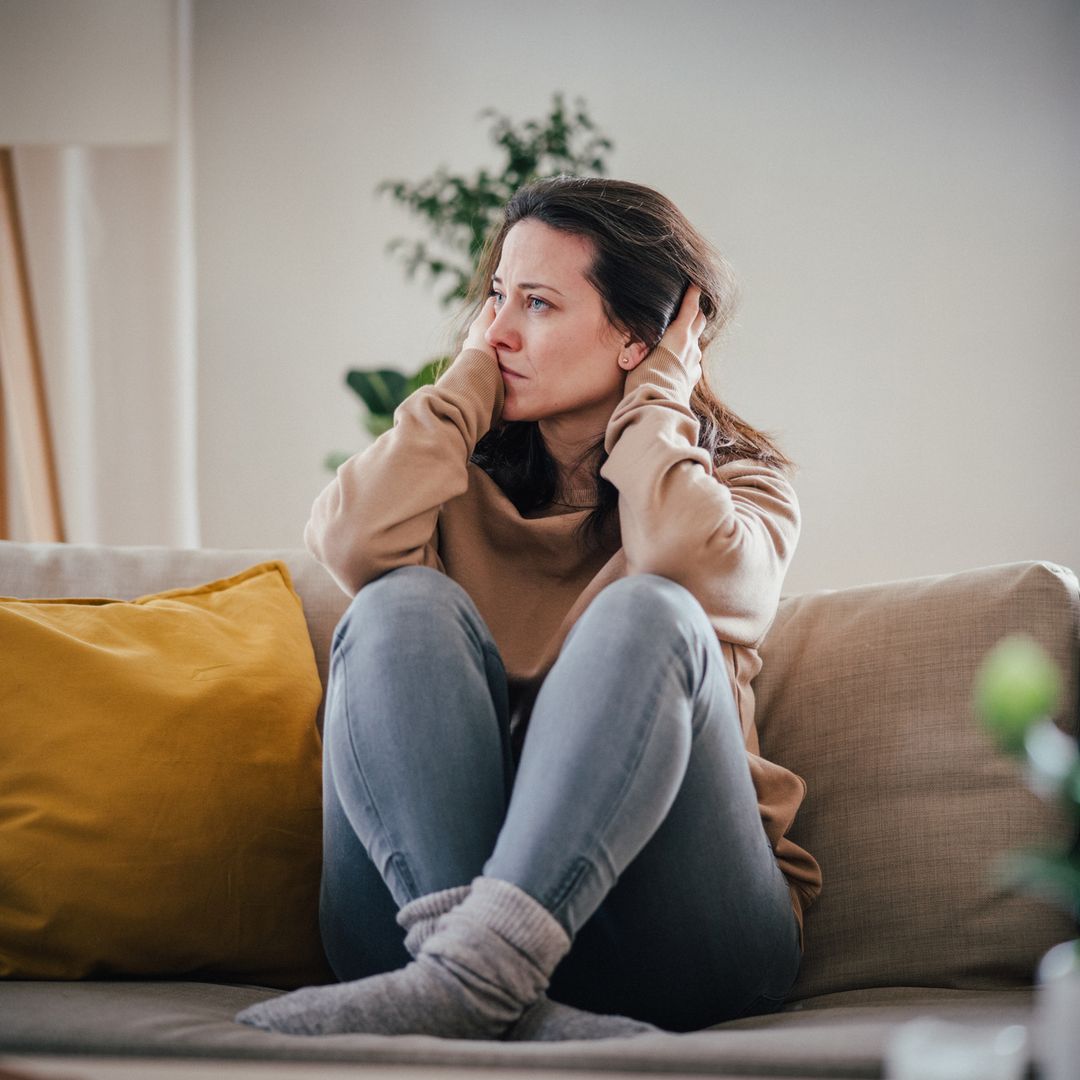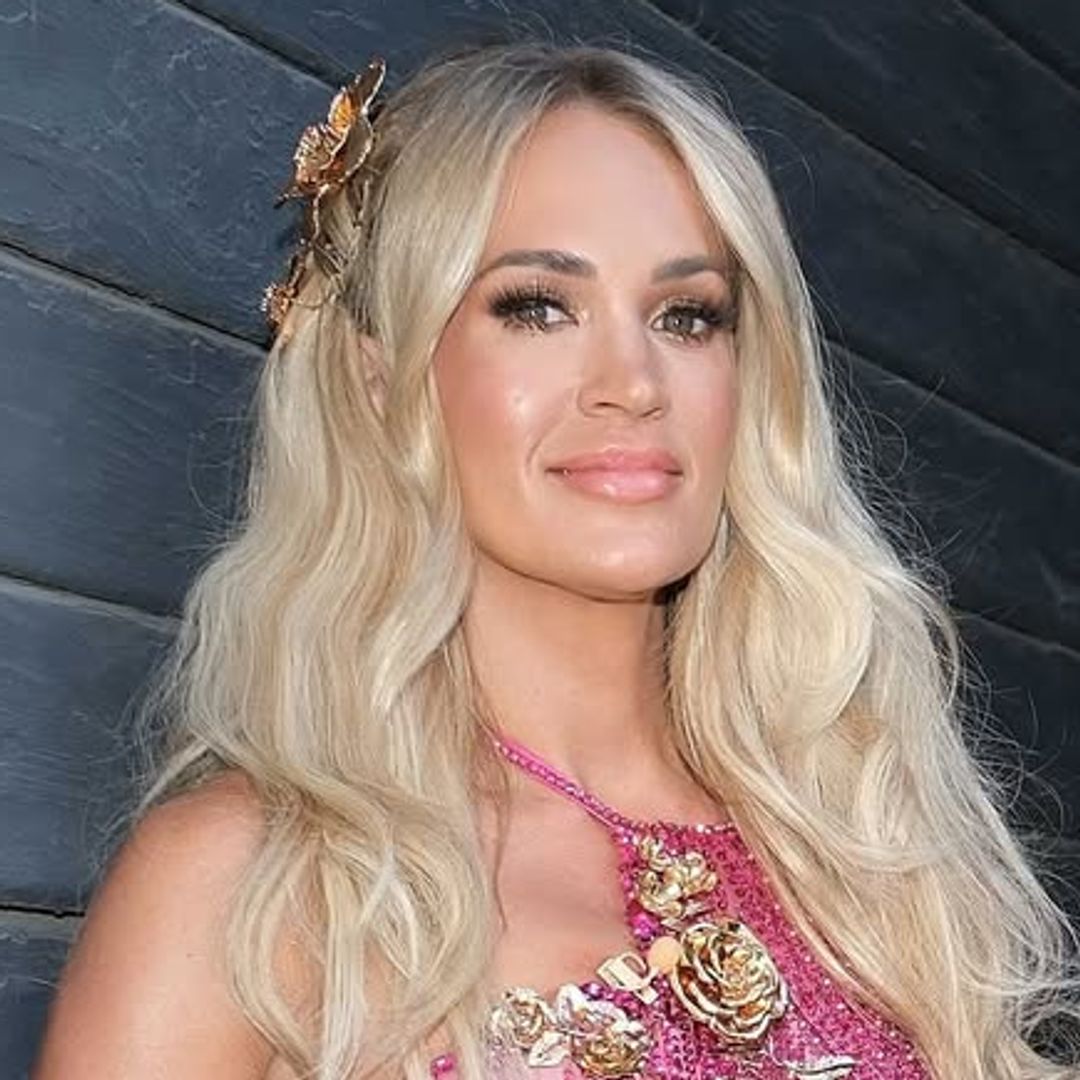I was 14 when I was told I needed to lose weight. At the time I was a track and field athlete, running for Scotland. I'd just finished a race and a coach said I needed to be more like the other girls: skinny and light.
I remember clearly feeling exposed, as I stood in my athletic gear: a crop top and pants. My whole little body tense and my mind going bonkers: shameful thoughts convincing me there was something wrong with me. That I was fat. That I was disgusting. That my body wasn't welcome in this space. The body-shaming self-critic inside me sprung to life.
Growing up in the 90s, diet culture taught me that fat equals bad, skinny equals good. This comment catapulted me into years of focusing on my weight, the shape of my body and comparing myself to other women and girls.
Years of me thinking that if I could shrink myself, I might be good enough and fit into the world. The bully in my head took over and I believed if I could get smaller, I would be happy.
I dieted, restricted food, over-exercised, used laxatives and made myself sick. I obsessed over calories and fitness tracker apps. I isolated myself from friends and family. This led me to a dark place of bulimia, depression and anxiety.
READ: How rock climbing finally helped me embrace my plus-sized body
It was only in my early twenties, when I was suicidal, that my parents stepped in and supported me to access help. I accessed Cognitive Behavioural Therapy which helped me face my demons: making peace with food, understanding my emotions, rejecting diet culture and developing self-compassion. This later led to me pursuing a career in psychotherapy.
Diet culture is impossible to miss. The message that women and girls should meet a narrow ideal: be white, young and skinny is the air that we breathe. If you don't meet this ideal (which let's face it only 0.000001 per cent of us do), then you must shrink yourself to meet this so-called 'holy grail.'
OPINION: Can changing your body co-exist with body acceptance?
Unfortunately, many of us go on endless diets to try and meet this ideal. The diet industry is a multibillion-pound industry, and it pays for these companies to breed insecurity in women and girls. Only 5 per cent of diets work, and so this creates a bandwagon effect – on the diet, off the diet.
What is problematic is that we often blame ourselves for failing at diets. With diets there tends to be a binge-restrict cycle: where we have a desire to lose weight, we restrict food, our mind becomes preoccupied by food and sends out intense hunger signals, which leads to us binging or overeating.
After this we typically feel shame and like we are a failure. Due to diets having such a low success rate, we get stuck trying to shrink our bodies via the next diet. Diets rarely work, so gentle reminder: we are not failing at diets… the diet industry is failing us.
MORE: How a naked photoshoot taught me to love my chronically ill body
So, how do we hand back the shame gifted to us by diet culture?
Reject diet culture
Remember diets rarely work. Your body belongs to you and is not the property of diet culture.
Eat foods that feel good and nourishing for your body, let go of food rules, stop restricting food and learn to eat intuitively. For me this is not seeing foods as 'good' or 'bad,' and instead enjoying things such as chocolate without the guilt attached.
Embrace body neutrality
Instead of focusing on how your body looks, move the focus to how your body functions. I had a baby by C-section and have a big scar. It's really tempting to criticise the appearance of my scar and my postpartum body. However, body neutrality has helped me appreciate my body for bringing my baby into the world, without focusing on aesthetics.
By appreciating what our bodies do for us, we release the pressure of our bodies needing to look a certain way.
READ: Ballet first ruined then repaired my body confidence
Notice thinking traps
We can fall into 'compare and despair' thinking traps, comparing our bodies to others. Recognise when this trap comes into your awareness and try not to feed it. The more we feed these thoughts the bigger they grow.
Instead, intentionally stop, take a breath, notice the thought and let it go. We can do this by creating a distance from the thought: say 'I notice I'm having the thought that…' or visualise placing the thought on an internet pop-up window and hitting the close button.
Clean up your social media feed
Make sure your feed includes content that feels nurturing for you. This might be following people that inspire you and lots of different types of bodies, of all ages, shapes, colours and sizes. Block, delete or mute accounts that make you feel bad about your body.
Recognise your triggers
Triggers are something that elicits a reaction, often worsening our mood. It can be a person, place, situation or thought. It's helpful to get to know your triggers. When is it you feel low in self-confidence? What happens? What do you do? How do you feel? Keep a log on your phone, get curious and like a detective trying to solve a crime, consider what you might need to do differently in the future.
MORE: I'm a confidence coach - these are 3 rules I tell all my clients
Notice your glimmers
Glimmers are the opposite of triggers. These are things in our environment that cue safety and joy in our nervous system. This results in us feeling present, connected and open to the world around us. Get curious – keep a note of these and intentionally go glimmer hunting. Finding joy in the world and reconnecting to your values!
Wear clothes that fit
When we squeeze into clothes in an attempt to wear a smaller size, this can trigger shame and signal to us that we need to diet to fit into these clothes.
Instead, wear clothes that actually fit, are comfortable, spark joy and that you feel good in. This can really boost our confidence.
Develop self-compassion
The antidote to self-criticism is self-compassion. Instead of beating ourselves up, we meet ourselves with kindness. When you are noticing the self-critic coming online, consider, 'What would I say to a friend who was struggling?' and offer this gentle kindness back to yourself. It can help to journal this out first.
Seek help
Access psychotherapy or speak with your GP if you feel you need professional help. You can access information about eating disorders via BEAT.
Find out more about Lauren's psychotherapy work here and sign up to Lauren's course on managing your emotions here.

